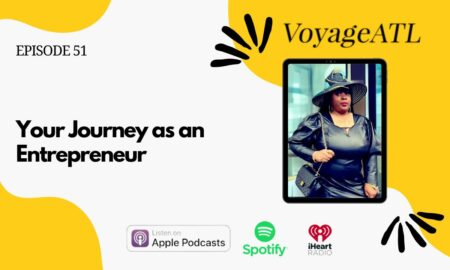 Today we’d like to introduce you to Sandy Bruce.
Today we’d like to introduce you to Sandy Bruce.
Sandy, please share your story with us. How did you get to where you are today?
A couple of decades ago, if you had asked me what I’d be doing today, I’d probably have told you I’d be retired in front of an artist’s easel. I had just become a grandmom, and when my beautiful little grandson was diagnosed on the autism spectrum, my life’s path changed forever. Today, I’m busier than I’ve ever been to. Inspired by my grandson, I run a nonprofit that I founded, Autism Improvised, that uses improv to address the social communication challenges faced by people with autism.
When I first started out as Shenanigans Improv in 2009, it was in response to James’s needs for socialization and to nurture his budding desire to perform for an audience. Youth theater did not work out for him. I went on a quest to find some way to improve his ability to understand his social universe while giving him the opportunity to perform. That search took me to improv. Improv is spontaneous and unscripted, which was in total opposition to my own tendency to plan the heck out of my days and deliberate every decision. But it seemed to dovetail perfectly with all the challenges James faced: working with others, supporting new ideas, broadening his thinking beyond his intensely focused interests, adapting to change, listening, responding in context, and, importantly, developing friendships and self-confidence. I figured if James needed this, there were likely a lot of other young folks who did, too.
I found no models of this approach – intersecting improv with autism – anywhere locally or in all of Googleland back then. So, I decided to try out the concept, finding a talented local improv teacher to work with me to develop a couple of summer camps. They resonated with the autism community, so we moved on to an afterschool class held in borrowed space at an area church (which is still going on ten years later). This first teacher remained a popular member of our team for several more years while I brought on additional teachers, scheduled more classes, and found more hosted venues in many areas of metro Atlanta. We were off and running.
As James grew into his teens, I began to sense the wall we were hurtling toward. He was approaching aging out of the support of the school system, and into the lack of supports as a post-secondary adult. Our expectations were that he would be able to find a job, maybe even go to college. But we had a lot of ground to cover first in learning about the grown-up world he was about to enter. I developed a concept for facilitating a better understanding of the nuances of relationships, from the work environment to one-on-one. My lead teacher and I researched and developed a curriculum around 6-week modules where a specific topic of real-world communication was looked at from all angles, using improvised role play, real life simulation, and discussion – the interview process and getting a job; staying on the job and flourishing; dealing with difficult people; handling anxiety and frustration; and other topics working for success on the job and in life. Our Code Breakers program was started in 2012. Today we work with highly motivated young adults who are headed to college, post-secondary training, and the competitive workforce. We are honored to be working with Excel at Georgia Tech since its beginning four years ago, and we are a direct service provider for Georgia Vocational Rehabilitation.
We had several of our teen girls experience some harrowing misadventures thanks to social media and social naivete, so I felt we needed a way to help these young ladies grow into healthy adulthood through strong self-advocacy and good decision-making skills. Bright Paths kicked off in Decatur in 2014 with a small group of high school girls, and this same group of girls is still together today. We hope to expand this program into other metro areas as well.
In late 2015, I decided it was time to evolve into a nonprofit corporation as Autism Improvised, giving an organizational home to our programs. The change from an entrepreneurial venture to a nonprofit is yet one more chapter in the history of our organization, and it has required growth on my part from being the captain of the ship to sharing the vision with a team. But the move is allowing us to explore additional programs through grants and funding. Stay tuned – we hope to be making some pretty cool announcements soon!
Has it been a smooth road?
Like a lot of businesses – nonprofit or for profit – we have our ups and downs. But I am so fortunate to have a wonderful team of people around me who are passionate about what we do and love doing it.
There are a few bumps in our road that we have to navigate, though. Our sweet spot is working with young “Aspie-type” adults, and a big challenge is finding these young adults once they have exited the K-12 system. It’s a constant search to find ways to reach this population.
Another challenge is avoiding mission creep. Our mission is to serve those who require a low level of supports. (We hear the high-functioning label a lot, but I am leaning toward defining levels of supports, instead.) These are the invisibly disabled. I’ve had some tell me that they are too able to be disabled and too disabled to be abled. But they definitely do have challenges, and our mission is to help them find ways to cope with and address these challenges. We get calls from families of children needing higher levels of support, and our own challenge is to wrestle with wanting to be all things to all people. It’s really difficult to have to tell a parent that our program is not a fit for their child who requires much more support than we are able to provide. We want to set our participants up for success, and the challenge is to stay focused on what we can do to best serve our target audience. So we are happy to suggest other organizations who can provide the services that fall outside our mission.
Then, there’s finding space for our classes. Our business model for the past ten years has been to bring our classes to the neighborhoods that want us. We currently have six hosted locations around the north metro area, from Marietta to Decatur, and a part-time teaching staff of six. While our classes are perking right along, our operations are headquartered wherever I can park my laptop. The business is still pretty much a one-woman effort. It would be wonderful to have dedicated space for classes and administration, a black box theater, and a budget for staff to keep everything on track. This requires funding, and we’re still getting our feet wet in fundraising.
So, as you know, we’re impressed with Autism Improvised, Inc. – tell our readers more, for example, what you’re most proud of as a company and what sets you apart from others.
The elevator speech is Autism Improvised uses the fun of improv to help youth through adults with autism or related conditions grow their social communication skills for greater success at work, on campus, and in the broader community.
We are a pioneer in the field of applying improv to address the social challenges of autism. Over the years, I have had people from all over the country and even abroad contact me to find out more about how we do what we do. I am always happy to share, and it is gratifying to see improv for autism groups springing up around the country more and more.
We even conducted a webinar training series last year for professionals and others interested, called “The Intersection of Autism and Improv”. For our first time doing this, it drew a fair number of participants from the west coast to the east. We had some great content from our own history of experience, and some wonderful knowledge experts were presenting more clinical content. We got very positive feedback and we learned a lot on the technical side, too. It’s whet our appetite for doing more of these events.
Being an activity that specializes in soft skills, it’s difficult to quantify our successes. But when we hear from our participants and their parents about the positive effect we’ve had on their social growth, it is a wonderful affirmation of what we do.
Of course, we wouldn’t be where we are today without the wonderful people who face our participants weekly – our teachers. Each one of our team is dedicated, passionate about our mission, talented, and exceptional in their feel for autism. I am very proud and honored to be surrounded by these wonderful people.
Let’s touch on your thoughts about our city – what do you like the most and least?
Let’s start with the gripe, first. I’ll bet there are a lot of others who agree with me – the traffic! It’s a significant consideration when I select a new class location and time and factor in my class director’s commute.
On the upside, I feel that the potential for growth here in Atlanta is limitless. The city has a vibrant improv community, which brings opportunities for collaboration. There are some very active autism support groups in the metro area, and wonderful research and therapy centers like Atlanta Autism Consortium, Marcus Autism Center, and Emory Autism Center. We have the ingredients to inspire our own continued growth and evolution right at our fingertips.
Contact Info:
- Website: www.AutismImprovised.org
- Phone: 770-573-0320 (main); (770) 354-5770 (mobile)
- Email: sandy@autismimprovised.org







Getting in touch: VoyageATL is built on recommendations from the community; it’s how we uncover hidden gems, so if you know someone who deserves recognition please let us know here.



















